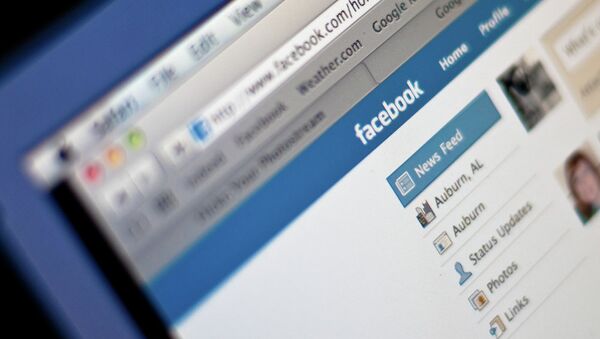Sputnik: European lawmakers were largely dissatisfied with Mr. Zuckerberg’s testimony, deeming the Facebook CEO’s answers insufficient and evasive. What measures could the parliamentarians undertake against the social network?
Laura Bliss: Twenty-two minutes to try and answer questions about such significant items that are going on in the world probably wasn’t long enough. I think the EU Parliament should have done a lot more to try and get him within Parliament for longer than an hour. You know, you think that in most countries if we have a debate on a topic, so obviously in the UK we’ve had a social media committee come forward where we’ve had representatives from Facebook, Twitter and YouTube, but not Mark Zuckerberg himself.
And there was nearly a whole day devoted to that and yet the EU went down the route of just giving him essentially an hour. Where do we go now? I think really he still must answer the questions. Yes, he has put forward the idea that he’s going to have a written response to the questions, but the issue is – who is he going to get advice from before he answers those questions; whereas if he’s right in front of you and you’re asking him questions you can be more forceful in trying to get a more direct answer, whereas now he could if he wanted to seek legal advice before answering those questions.
And I don’t think we’ll necessarily get the answers that we’re looking for.
Sputnik: Do you think that he’s going to continue to be allusive and he’s not going to really, I mean this is like the 15th time he’s apologize for some serious problems and serious breaches and concerns that people have had. Do you think there actually will be a move forward by Facebook to do anything about the problem?
Laura Bliss: Facebook is a wonderful thing, it’s a new way to communicate, it’s a new way to create campaigns for, for example. But the amount of people that use the service, the monopoly that actually Facebook has in the social media industry, means that they have a responsibility to people, to protect people, to ensure there aren’t data breaches, to ensure there’s no fake news on their site. You know, Cambridge Analytica, they were bombarding people with topics, which were suited to them.
So if you’re never challenging someone’s assumptions about a topic, how are you meant to create a democracy? How are you meant to challenge those people who believe one thing – that doesn’t create speech within society you’re essentially just agreeing to what that person thinks.
I think Facebook, they just tend to apologize and hope it goes away never. They’ve released the scale of abuse on their site, but that tells us very little about what is going on behind the scenes. For me I think that one of the reasons they’ve probably done that is to try and prove to people that they’re doing something. But again, it just tells you very little, they’ve been very secretive about what’s going on on their site.
Sputnik: Do you think that perhaps we shouldn’t rely on Facebook to fix things, we should actually rely on governments to make laws that forbid certain kinds of data collection, that forbid doing so without people’s knowledge, without people’s very clear agreement with this? And also perhaps we need to be made legally the owners of the information that we create? Is that going to happen any time soon?
Laura Bliss: I don’t know whether it would happen anytime soon, but I do think it is a way forward. If you think about when people sign up to Facebook, so when I signed up to Facebook I would have been probably 13 or 14, I had no idea that my information would be used like this. For me it was a communicating tool, it was to tell people what I was doing, it was to upload photos.
The fact that they were actually harvesting our information and then using this to target us – I don’t think that’s actually what most people have in mind when they sign up to Facebook. You know, yes you sign up to terms and conditions, but if you see how many terms and conditions they that have – who actually reads the fine print?
I think they need to be more upfront about what we do with their data. It’s been argued actually, the BBC did a documentary around this time last year and they said that Facebook knows more about us than any government organization. They’ve got this data, they have a duty to protect it, they have a duty to make sure it’s being used in the correct manner.
If this was like a government organization or a certain aspect of our government who had essentially lost our data, there would be absolute uproar and I think we’d be demanding change. I think that’s the way we need to be going with Facebook. They’ve essentially let the people down, they’ve allowed data to be harvested, most people without even realizing this is going on. My understanding is that actually Facebook became aware of it in 2015 and yet it’s not until this year that we’ve become aware of it.
The views and opinions expressed by Laura Bliss are those of the speaker and do not necessarily reflect those of Sputnik.

